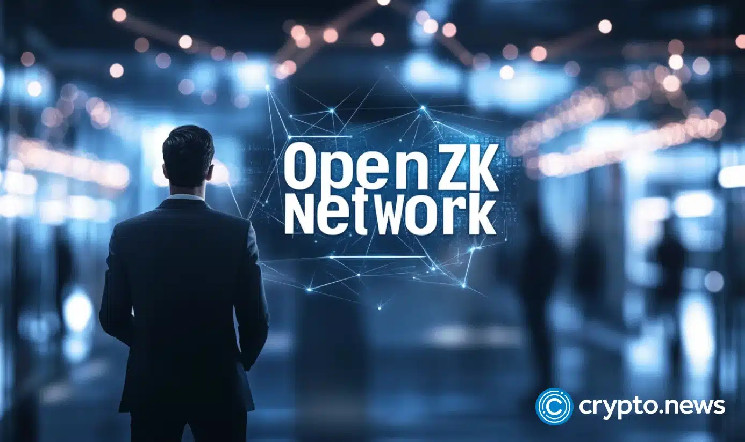Dave Sandor, former executive director at Goldman Sachs and Morgan Stanley for the Asia Pacific region, announced his new role as co-founder at OpenZK Network, a solution designed for ZK-Rollup scaling.
OpenZK announced Dave Sandor would be joining as co-founder to spearhead advancements in ZK-Rollup scaling solutions on X. Sandor has worked as an executive director at Goldman Sachs and Morgan Stanley to focus more on product structure, integrating institutional finance into potential decentralized finance. At OpenZK Network, Sandor will lead the development of next-generation Layer 2 solutions, focusing on improving the ecosystem’s reward mechanism and user experience.
“Dave’s unique expertise positions us to advance the L2 landscape, delivering performance, security, rewards and a superb user experience for our entire ecosystem — from developers to traders to institutional partners.”
OpenZK’s X post
OpenZK has become the first native to support Ethereum (ETH) staking, re-staking, or liquidity, as well as stablecoin staking L2 scaling solution. Real-world assets, stablecoins, and staking are services that cater to these fast-growing segments in the DeFi.
With the growing momentum of L2 solutions, Sandor’s financial acumen is expected to be pivotal in guiding OpenZK’s strategic growth and development.
ZK-Rollups current challenges
ZK-Rollups are important for solving the issues blockchain has been struggling with for quite a while, such as scalability, cost, and privacy. They do this using an off-chain bundle of transactions that are validated using zero-knowledge proofs submitted to the main chain. This greatly alleviates congestion and gas fees for networks such as Ethereum while maintaining security.
An important step.
Some important next steps:
* Helios (or alternatives) being integrated into user wallets, on mobile and desktop
* L2 configs moving onchain (first step: https://t.co/bg0x9VOUee )
* L2 configs including specification of state proof verification rules (a… https://t.co/eCVymtfp5M— vitalik.eth (@VitalikButerin) October 25, 2024
Furthermore, experts also have explained that ZK-Rollups offer improved privacy by only requiring proof of transactions to be verified without having to expose sensitive information such as the contents of those transactions, making them suitable for privacy-concerned applications such as identities and financial services that need to build trust amongst users.
Despite these benefits, they also come along with several disadvantages. Some of them include complex development, computation-intensive proofs, difficulty in integrating dApps, and data availability issues for off-chain transactions, as seen previously in ZKsync. Sandor’s new position as co-founder of OpenZK can address ZK-Rollup’s present challenges and lay the ground for mass adoption and future growth of ZK-Rollups as a whole.

